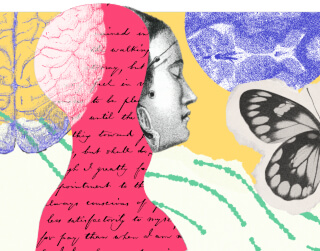Bangalore is a Happening City. We’ve heard it so many times. But what does that mean? Did the people of Magadha say it was a happening city? Or the citizens of Awadh? Or nearer in time, did Bombayites think their city was happening? And did this actually start getting said because the city in some sense had already happened? That it had all the great hallmarks of a metropolis – a growing business/trade district, participatory politics, arts and culture, tolerance o f migration, social peace -and an aspirational status that allows everyone and anyone regardless o f class and caste, to think o f it as a desirable destination.
In that sense, Bangalore has already happened.
Type: Article
North-South Hatthira Bandaaga (Kannada)
North-South Hatthira Bandaaga (Kannada).
Prajaa Vaani.
Nirmaadane (Kannada)
Nirmaadane (Kannada).
Prajaa Vaani.
Premier Book Shop
Does everyone in Bangalore know how to get to Premier Book Shop? Of course not. You have to get to M.G.Road and then find platform Nine and Three Fourths! Clearly, you have to be a wizard to actually shop at Premier.
At a very special lunch at the warm home of Ramchandra Guha and Sujata Keshavan, on Sunday , January 27th, many wizards spoke about then dependency on the little store on Church Street. Proprietor T.S.Shanbhag, normally rather cleverly disguised as an ordinary, balding, indifferent gentleman without credit card facilities, was seen to blush and preen. Speaker after speaker spoke in the most extreme language about their
experiences at‘Premier.
The Journey to yoga class – Iyengar Yoga classes
For the past two and a half years, 1 have regularly attended Iyengar Yoga classes in Bangalore, the Silicon Valley of India. I practice under the guidance of Yogacharya Shri H.S.Arun, a long time student of “Guruji” BKS Iyengar.
The class is about seven kilometers away from my home. I travel by car, and am usually
chauffeurea. As anywhere in urban India, the route is noisy, polluted and ridden with
chaos. Often, there are roadblocks due to repair/construction work, or there are little
accidents between swaggering commuters or then, there may be slowdowns due to rain.
Shikshanakke Number 1 Priority Sigabeku (Kannada)
Shikshanakke Number 1 Priority Sigabeku (Kannada).
Rohini Nilekani.
From darkness unto light – Akshara foundation has initiated 20,000 slum children into education by integrating private, voluntary and government sectors.
SMALL drops in an ocean. This is how the people at Akshara describe their efforts. Ali this despite the fact that 20,000 children in slums around Bangalore have already been initiated into the world of letters by this foundation through its educational programme.
MONOPOLY ON IDEAS
More an explorer than a strategist, the Net-economy woman is teaching business how to do the job.
These are snapshots of four women from Bangalore, perhaps the fastest evolving city in India. I have chosen them because I like to believe these women are part of our mentor capital. 1 like to believe that we need to know more about them and about women like them. How we use that capital is up to each one of us. But we are going to feel richer just for knowing it’s there.
Keeping The Romance Alive
What is the price of fame? Incessant travel, for one. Constant tension over the fickle media, for another. Smiling all the time in public, posing for photos with strangers, suffering autograph hunters, being surrounded, squeezed out of breathing space. Does all this bother A. Hariharan, the south Indian singer who’s made it big in the world of ghazal and pop? “Hey, I asked for this. I wanted it. No cribbing.” It’s all in the fame game.
A Face In The Crowd – Usha Kini
She has dared to be different in a staid world. Usha Kini, a producer on DD Bangalore, firmly believes that television can make a difference to our lives.


